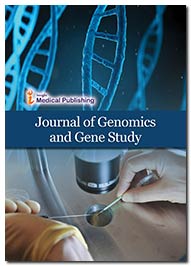Role of Pharmacogenomics in Identifying Cancer Survivors at Risk for Adverse, Persistent Toxicities
M. Eileen Dolan *
The University of Chicago, USA
*Corresponding Author:M. Eileen Dolan
The University of Chicago, USA
Abstract
There are now over 28 million cancer survivors worldwide, and as a result, there is a heightened awareness of the long-term toxicities resulting from treatment and their impact on quality of life. Understanding the role of germline genetic factors in the development of cancer treatment- related toxicities is critical for the identification of patients at risk as well as for the development of drugs to treat or prevent these toxicities. The purpose of this presentation is to review current understanding of genetic susceptibility to adverse outcomes among cancer survivors following chemotherapy with a particular focus on genome-wide association studies (GWAS). Few of the findings from earlier narrowly focused candidate gene studies have been replicated in independent populations. A major strength of genome-wide approaches is that they do not require assumptions about the genes or pathways involved in the pharmacologic trait. The challenges include the need for large cohorts of patients with homogeneous treatment exposures and systematic evaluation of well-defined outcomes as well as replication in independent study populations.
Biography
: M Eileen Dolan’s lab is focused on improving the quality of life of cancer patients through the identification of genetic variants associated with risk for severe and persistent toxicities following chemotherapy (i.e. peripheral neuropathy, ototoxicity, tinnitus), particularly in children and young adults whose adverse squeal could persist throughout their lifetimes. To this end, they perform clinical genome-wide association studies (GWAS) to identify genetic variants associated with toxicity in patients following chemotherapy. In addition, they develop preclinical models to elucidate the biochemical and cellular impact of genes identified in clinical GWAS studies of chemotherapeutic toxicity. More recently, her laboratory has developed an induced pluripotent stem cell-derived neural cell model to evaluate genes contributing to chemotherapeutic-induced neuropathy, a common adverse event of multiple chemotherapeutic agents. Using patient-derived induced pluripotent stem cells, they are developing models that will have broad applicability for gaining insight on drug gable targets to treat or prevent this devastating side effect of chemotherapy
Open Access Journals
- Aquaculture & Veterinary Science
- Chemistry & Chemical Sciences
- Clinical Sciences
- Engineering
- General Science
- Genetics & Molecular Biology
- Health Care & Nursing
- Immunology & Microbiology
- Materials Science
- Mathematics & Physics
- Medical Sciences
- Neurology & Psychiatry
- Oncology & Cancer Science
- Pharmaceutical Sciences
